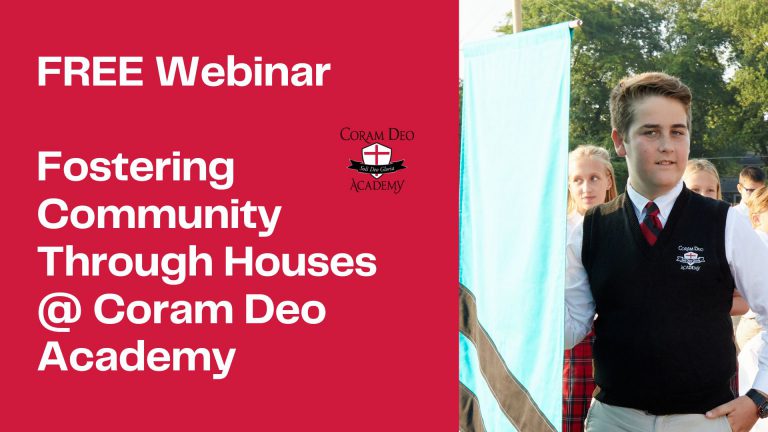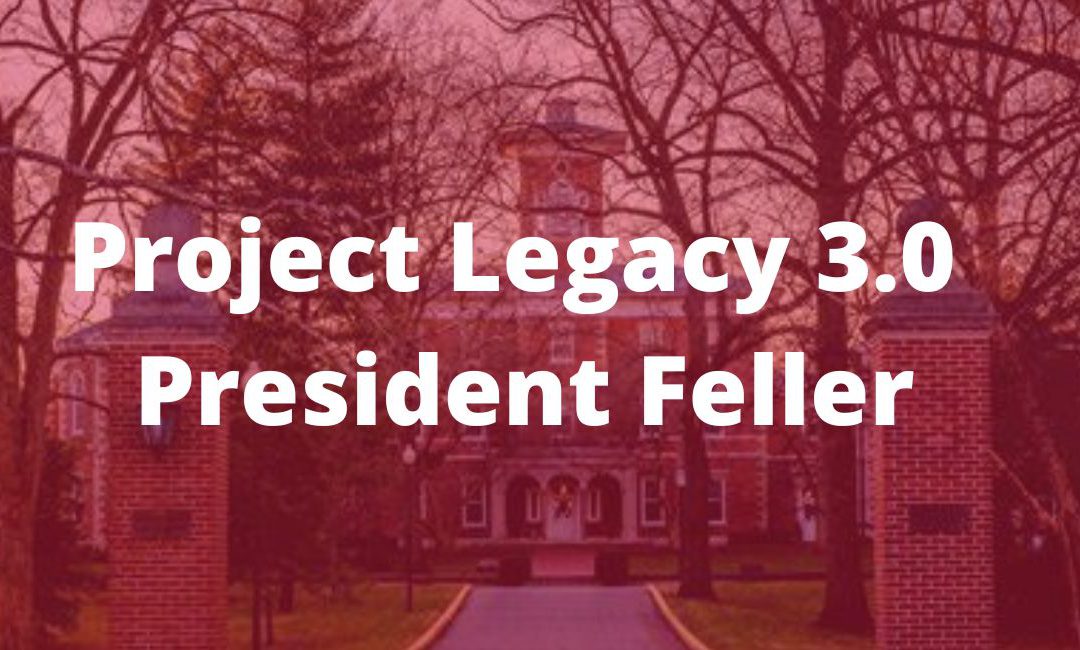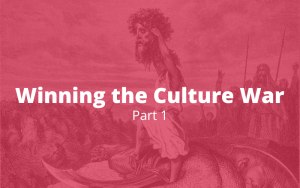by Dr. David Seibel, Head of School
In Project Legacy 3.0, readers learn from people outside of Coram Deo Academy in order to understand the classical learning inside Coram Deo Academy (Carmel, IN). In this post, I share four lessons I learned from Wabash College President Dr. Scott Feller. Although I am an alum of Wabash College, I have no formal connection to Wabash or Dr. Feller. Instead, I value platforming the good work that others are doing and am thankful for the ways in which God has shaped me through my experiences with Wabash College and Dr. Feller.

Scott Feller has been at Wabash College (Crawfordsville, IN) for the past 25 years and began his role as President during Covid in 2020. Dr. Feller, when serving as chemistry professor for two decades, helped many young men prepare for careers in medicine and aided a handful in realizing that medicine was a not their calling (this includes me). In this video, Dr. Feller explains how he is guiding this all-male residential liberal arts college into its third century (founded 1832). One quote that stands out in Dr. Feller’s presidential video,
“I think we have learned that it is the relationships that matter at Wabash College.”
With the rise of AI, virtual learning, and massive state universities, relationships become even more important. Wabash College and Coram Deo have in common the emphasis of strong teacher-student relationships, learning around a table, and liberal arts (classical) education.
#1 Going Against the Grain
Dr. Feller shared,
“Wabash has always gone against the grain. The road more traveled has never been the way that this institution has gone. Most colleges have taken the ‘growth is good’ approach. Wabash College, on the other hand, has maintained the same size and we have very little pressure to scale.”
Wabash College has <1,000 students on less than 100 acres of campus yet its graduates punch far above their weight. The motto is Wabash Always Fights and emphasis is on quality over quantity.
The reason for their exemplary outcomes is that they are different by design. They attract a different type of student and graduate a different type of individual. Dr. Feller is quick to say that he is not saying that every school needs to be like Wabash College. In similar fashion, it is important to say that Coram Deo Academy is not for everybody. We are after a certain sort of family and have a particular set of outcomes we want to see in our graduates. Similar to Wabash College, we want to reach our peak size (~400 students) and stay there. Defining your constraints by the size of your campus and the scope of your vision is really uncommon but really helpful. Dr. Feller shared, “We have never gone with the crowd.” I am with him on this front.

#2 Fewer Rules and More Responsibility
Wabash College is well-known for only having one rule for their students, The Gentleman’s Rule: “The student is expected to conduct himself at all times, both on and off campus, as a gentleman and a responsible citizen.” There is a long tradition at the college that gets passed down in living halls and fraternities that emphasizes the importance of taking responsibility for your actions. I think I was only taught the Gentleman’s rule explicitly one time as a Freshman, but I caught in the atmosphere hundreds of times over four years. This really seems to be the most effective way of building a culture. Students are less policed at Wabash and have greater freedoms because they know that responsibility is the other side of the same coin. I’ve heard it said that we need the ‘statue of responsibility’ on the west coast to complement the statue of liberty on the east coast.
While there are certainly some differences between K-12 and Higher Education, fewer rules with more responsibility has a long tradition within liberal learning. The reality is that adults cannot make children learn, but students have to decide for themselves that they want to achieve and excel academically. Creating an environment where students take responsibility for their own results is essential for schools to thrive. Deciding appropriate levels of freedom and responsibility definitely depends upon the age of the student.
#3 Low Floors and High Ceilings
College professors have been noticing for years that the students coming to college are changing. Books like The Dumbest Generation Grows Up: From Stupefied Youth to Dangerous Adults document the long-term negative impact of technology and other factors impacting educational attainment. Many students are showing up on campus unprepared to read substantive texts, write and defend an argument, or sweep a fraternity basement floor. When I asked Dr. Feller about this, he shared,
“Students are always changing. Wabash students after WWII were different than the 1970s who were also different than the 2010s and, guess what, are also different than today. We should not stick our head in the sand and say we don’t notice any change. Students have changed but I don’t see any change in the ceiling— in their potential. In fact, what young people can do today is probably greater than previous generations.”
It is easy to fall into ‘the freshmen are getting shorter’ syndrome. As we get older, we become more aware that things are not the way that they used to be. We think the height of achievement of those coming behind us is pathetic compared to the height of our achievements. This is a dangerous mindset to fall into for any parent or educator. Aging does not always equal maturing and more experience can lead to great skepticism about the youth coming after us. We should fight against the cynicism that spreads so easily.
Dr. Feller’s perspective is essential for any parent, grandparent, teacher, or administrator. No matter the starting point, it is crucial to maintain high expectations and set the bar high for kids. At Coram Deo Academy and at Wabash College, we treat each student as an individual. To be abundantly clear, CDA and WabCo have many differences (at CDA we are Christ-centered, have girls, and are a K-12 in partnership with parents). Yet, the focus on relationships, liberal-arts learning, high expectations, and individual responsibility is a clear point of intersection.
In education, we should have low floors which means that we should be open handed and receive kids where they are in their learning journey. Jesus did this with his disciples who were uneducated, irreligious fishermen. Good teachers do this with their students. But we must not be all empathy with no excellence. Good teachers always help students break through glass ceilings and achieve things that they never thought that they could.

#4 Preserving Liberal Arts Learning
Even though fewer and fewer men are going to college and more and more liberal arts colleges are closing their doors, Wabash continues to take the road less traveled by in focusing on critical thinking rather than technical training. I asked Dr. Feller, “As a chemist, why do you believe in a liberal arts education? What does a classical, or liberal arts education, do best?”
Dr. Feller explained,
“Students need strong foundations for the rest of their lives. The applications change over time but the foundations do not. Our alumni who are employers tell me that they need people with critical thinking skills, strong communication skills, and the ability to work well with others. They need people with strong habits of mind who can wrestle with difficult questions and ideas. This is what we do at Wabash College.”
Dr. Feller at Wabash College and the teachers of the 100,000+ students involved in classical Christian education are preparing the next generation for jobs that do not even exist yet. Given how often kids are going to change majors and how often they’ll change jobs when adults, they need training in how to think. They need strong foundations to build upon for the rest of their lives.
Project Legacy 3.0 remains in digital form because I am not savvy enough to create a podcast. In order to create this post, I interviewed Dr. Feller in his office, read up on his leadership before sharing this post with you. Every year or so, I relaunch the series with a new focus. In this third round (hence the 3.0), I am focusing on professors, presidents, and public intellectuals who have something to say about the issues impacting families. You can see previous editions of Project Legacy here.
Classical Reading List

RSVP for an Open House





